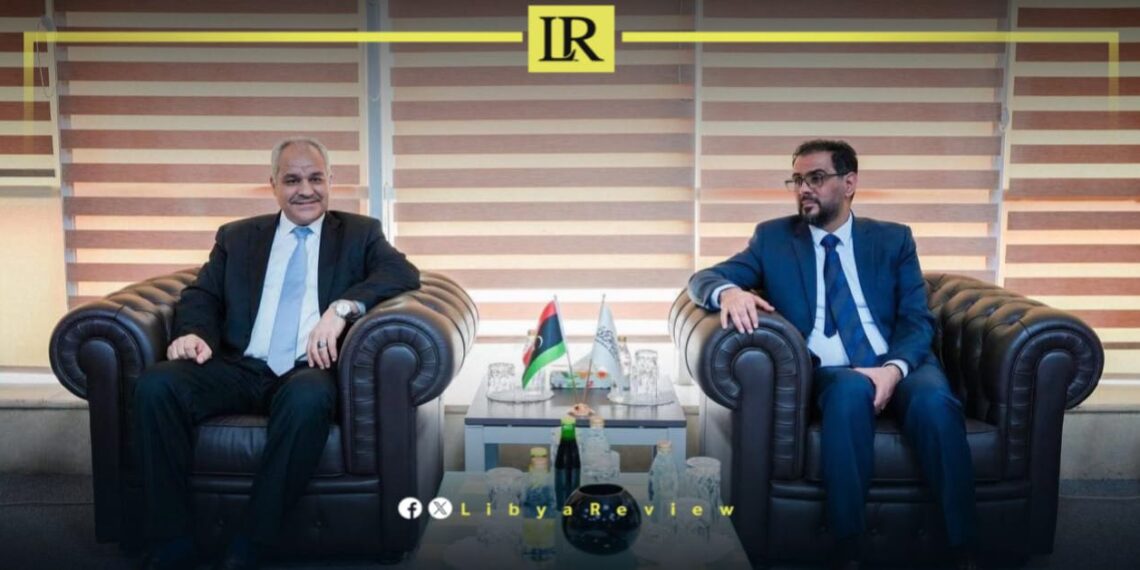Libyan Prime Minister of the Parliament-designate government, Osama Hammad, met today in Benghazi with Central Bank Governor, Najy Issa, and Deputy Governor, Marai Al-Barassi, to discuss the current economic challenges facing the country, including the impact of public spending on the Libyan dinar.
The meeting, also attended by senior officials from the Central Bank and various ministries, focused on aligning monetary policy with the broader national reform agenda. Hammad stressed the bank’s pivotal role in economic stability, urging closer cooperation to restore trust in Libya’s institutions and strengthen financial governance.
Prime Minister Hammad unveiled a comprehensive reform package aimed at revitalising Libya’s economy. Key measures include improving oil production by the National Oil Corporation, scrapping the outdated oil barter system, and introducing a transparent mechanism to ensure steady fuel supply, especially for power stations.
He also called for activating the unified salary law (No. 13 of 2023) to ensure fairness between public and private sectors, while encouraging the growth of small and medium-sized enterprises. Further proposals included modernising customs tariffs, reforming the taxation system, increasing telecom licence fees, and reviewing the Libyan Investment Authority’s legal framework to broaden financing sources.
Governor Issa highlighted the urgent need to balance revenues and expenditures, warning of a growing foreign currency deficit due to rising demand. He proposed replacing fuel subsidies with direct cash support and stressed the importance of adopting a unified national budget.
Both sides praised ongoing reconstruction projects in Derna and committed to joint action on key economic reforms. The meeting also gathered transport, social affairs, and finance officials, alongside senior figures from taxation and state property agencies.


